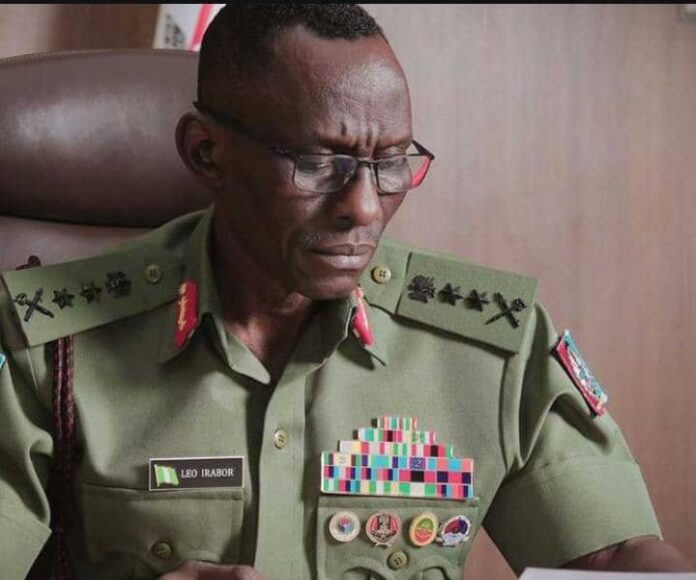By Fatima Mukhtar
Former Chief of Defence Staff, General Lucky Irabor (retd.), has revealed that the Nigerian Navy and Air Force were unhappy with the Army’s exclusive control over the fight against Boko Haram, describing it as a major setback in the nation’s counter-insurgency operations.
Irabor made this disclosure in his newly released book titled “Scars: Nigeria’s Journey and the Boko Haram Conundrum.” The retired General explained that, contrary to the provisions of Nigeria’s Defence Policy, the Army Headquarters once took full coordination of Operation Lafiya Dole, sidelining the other service arms despite their active involvement in the war.
According to him, the decision to centralize command under the Army created tension among the services, as the Navy and Air Force felt marginalized in the joint operation. He noted that the arrangement undermined synergy and cooperation among the armed forces, a factor critical to winning the long-running battle against insurgency in the North-East.
Irabor also painted a grim picture of the equipment and logistics challenges faced by troops in the frontline. He disclosed that the military had to rely on abandoned and dilapidated vehicles, some dating back to the civil war to sustain operations.
The ex-CDS further narrated that then Borno State Governor, Kashim Shettima, had to provide the military with construction trucks and tractors originally meant for farming to support logistics and troop movement.
Irabor also recalled how soldiers who complained about poor welfare and lack of weapons in 2014 were court-martialled, with some initially sentenced to death before the punishments were later commuted.
As of press time, neither the Nigerian Army, Navy nor Air Force had issued an official response to the revelations made in the former defence chief’s book.
The disclosures have sparked renewed conversations about inter-service rivalry, command structure, and transparency in Nigeria’s military operations, especially in the fight against terrorism and insurgency.




